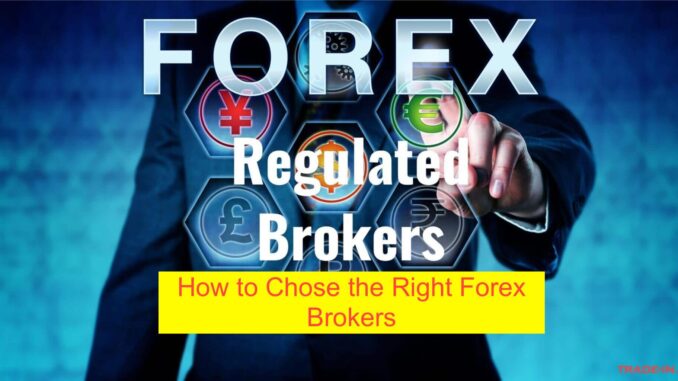
The foreign exchange market, commonly known as forex, is the largest and most liquid financial market in the world. With trillions of dollars traded daily, forex trading has become a popular investment option for both retail and institutional investors. To participate in forex trading, you need a forex broker. However, with so many forex brokers in the market, it can be challenging to choose the right one. In this article, we will guide you through the factors to consider when choosing a forex broker.
Regulation and Safety
The first factor to consider when choosing a forex broker is regulation and safety. Forex trading involves large amounts of money, and you want to ensure that your funds are safe. A regulated forex broker is an excellent indication that the broker is legitimate and follows the rules and regulations of the regulatory body. A regulated broker also provides a safety net for traders in case the broker goes bankrupt. Therefore, it is crucial to choose a broker regulated by a reputable regulatory body such as the Financial Conduct Authority (FCA) in the UK, the National Futures Association (NFA) in the US, or the Australian Securities and Investments Commission (ASIC).
Trading Platform
The trading platform is the software used to execute trades, view market data and charts, and manage your account. A good trading platform should be user-friendly, intuitive, and provide real-time data. Most brokers offer their proprietary trading platforms, while others use third-party platforms such as MetaTrader 4 or 5. When choosing a broker, it is essential to test their trading platform by opening a demo account. This will give you a feel of the platform and help you determine if it suits your trading needs.
Trading Costs
Forex brokers earn money by charging commissions or spreads on trades. The spread is the difference between the buy and sell price of a currency pair. A low spread means lower trading costs and, therefore, higher profits. Some brokers offer commission-based accounts, where you pay a fixed commission per trade. Others offer spread-based accounts, where the spread is variable and depends on market conditions. When choosing a broker, it is crucial to compare their trading costs with other brokers in the market to ensure that you are getting a good deal.
Customer Service
Forex trading can be complex, and you may need help from your broker from time to time. A good broker should offer excellent customer service to help you navigate the market. The broker should have a responsive customer support team that can be reached via phone, email, or live chat. The customer support team should be knowledgeable, friendly, and available 24/7 to help you with any issues you may encounter.
Account Types
Forex brokers offer various account types, each with its features, benefits, and minimum deposit requirements. Some brokers offer standard accounts, while others offer premium accounts with higher minimum deposit requirements but offer lower spreads or other benefits. When choosing a broker, it is essential to choose an account type that suits your trading needs and budget.
Trading Instruments
Forex trading involves buying and selling currency pairs. However, some brokers offer other trading instruments such as stocks, commodities, and indices. If you are interested in trading other instruments, it is crucial to choose a broker that offers a wide range of trading instruments.
Leverage
Leverage is the ability to trade with more money than you have in your account. Leverage allows traders to increase their exposure to the market and potentially increase their profits. However, leverage can also increase your losses. Therefore, it is crucial to choose a broker that offers reasonable leverage levels that suit your trading style and risk tolerance.
Education and Resources
Forex trading can be complex and challenging, especially for new traders. A good broker should provide educational resources such as webinars, tutorials, and trading guides to help traders understand the market. The broker should also
